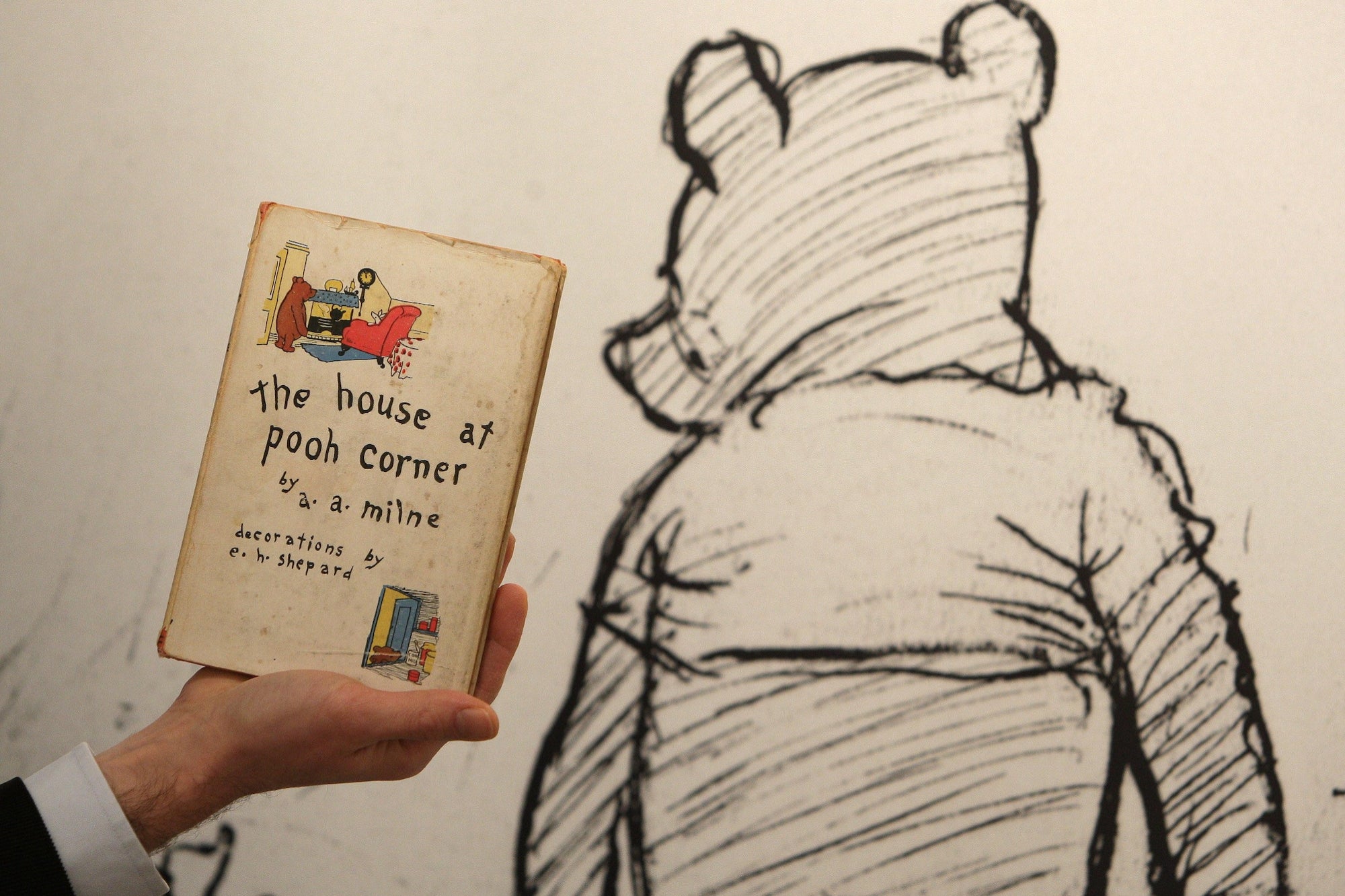
Be warned. The upcoming Winnie the Pooh trailer does not feature the cuddly, honey-loving bear from your childhood.
Winnie the Pooh: Honey and Blood is a horrifying, slasher flick apparently designed to haunt your dreams.
Related: 5 Quotes to Help You Conquer Your Fears
You might be wondering how a movie like this could even be legal. Doesn’t family-friendly Disney own the rights to this beloved character?
It’s complicated.
The Origin Story of Winnie the Pooh
Writer A.A. Milne wrote the book Winnie-the-Pooh in 1926. The collection of short stories about Pooh Bear and his friends Christopher Robin and Piglet features adorable illustrations by E. H. Shephard.
Disney licensed the rights in 1961 and has since released countless productions featuring Pooh and his merry band of friends, including Christopher Robin, Piglet, and their original characters, Tigger and Eeyore.
A Twisted Adaptation
But in the very un-Disney-like Winnie the Pooh: Honey and Blood, Pooh and Piglet become unhinged, rampaging murderers after Christoper Robin abandons them for college.
“Christopher Robin is pulled away from them, and he’s not [given] them food, it’s made Pooh and Piglet’s life quite difficult,” explained director Rhys Waterfield in an interview with Variety. “Because they’ve had to fend for themselves so much, they’ve essentially become feral.”
How Did Disney Allow This Movie to Happen?
If you’re wondering how the filmmakers got away with using such sacred intellectual property, you’re not alone. Twitter is awash with questions and indignation.
But last January Winnie-the-Pooh—the A.A. Milne book, not the Disney movies—entered the public domain, meaning it’s not subject to copyright laws. Disney still owns exclusive rights to their interpretations of Pooh and complete rights over their I.P. Tigger and Eeyore.
For this reason, the horror version of Pooh Bear doesn’t wear a red t-shirt, Piglet is dressed in black, and Eeyore, the donkey, does not appear, having been eaten by the famished Pooh and Piglet.
“No one is going to mistake this [for Disney],” Waterfield said.
https://www.entrepreneur.com/article/434506

